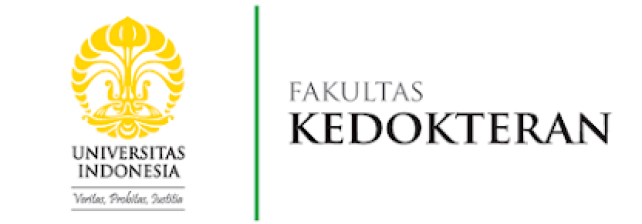Another success has been made by students of Faculty of Medicine, Universitas Indonesia (FMUI). This time, they joined the 5th Hypothalamus Competition organized by Faculty of Medicine, Jember University, East Java, on 12-14 July 2019.
The 5th Hypothalamus Competition is an annual seminar and competition organized by Students Research Center Revolution (SRCR), which is a student’s association in Faculty of Medicine, Jember University. Categories competed during this event are Literature Review, Scientific Poster, Scientific Essay, Education Video and Public Poster. This year theme is “Holistic Approaches to Decrease the Transmission of Tropical Disease in Agroindustrial Community.”
There were 2 awards received by FMUI students. The first one was the 2nd winner of Scientific Poster by Rayhan Farandy (FMUI student class of 2016), Devi Elora Gugun Siahaan (FMUI 2016); and Idham Rafly Dewantara (FMUI 2016). The 2nd one was the 3rd winner of Literature Review by Sheila Claudhea Salsabila (FMUI 2017); lyanna Azzahra Baihaqi (FMUI 2017); dan Leo Alfath Araysi (FMUI 2017).
The Scientific Poster they competed entitled “Potential HMGB-1 and CD163 as Biological Markers in Diagnosing Brucella Sp. in Humans to Reduce Brucellosis Death Rate “. It contains information about the diagnosis of brucellosis infection. Brucellosis is a zoonotic infection, which means it can be transmitted to humans through farm animals. Indonesia is an agricultural country with a large number of livestock, which makes us vulnerable to brucellosis infection. Brucellosis is most often diagnosed using bacterial and serological cultures.
Until now, the best biological markers with the highest specificity and sensitivity for bruellosis serology has not been found. This study was conducted to provide information about the potential of HMGB-1 and CD-163 as the latest biological markers in diagnosing brucellosis. Therefore, it could be as recommended markers for brucellosis diagnosis, thus may decrease mortality rate caused by this disease.
The result of this study concluded that HMGB-1 and CD163 have a potential effect on becoming biomarkers for brucellosis diagnosis. However, further research is still needed with more subjects as well as studies comparing the sensitivity and specificity of HMGB-1 and CD163 with other biological markers.
“We are trying to find out what infectious diseases in Indonesia is actually rarely considered. Incidentally brucellosis still has problems in its diagnosis. Therefore, we made a scientific poster to look for new diagnostic methods for an early detection of brucellosis.”explained Rayhan Farandy representing his friends.
Meanwhile, the literature review submitted in this competition was entitled “Tetravalent-mosaic virus like particle (Tm-VLP) with Co-expression of Epitope Domain III (ED III) as a Strong Candidate for DENV Vaccines”.
The literature review discussed one of the most common infectious diseases in Indonesia, dengue hemorrhagic fever. Dengue virus (DENV) with four serotypes (DENV1-4) is caused by viral infections transmitted by mosquitoes with the highest prevalence and incidence in the world. This infection may cause dengue fever, dengue hemorrhagic fever, or dengue shock syndrome.
Up until now, there are no effective vaccine found for DENV. Recent studies have shown that the ideal character of DENV vaccine must induce the same response of neutralizing antibody (nAb) from all four serotypes. The current live-attenuated vaccine has not been able to induce such an ideal response, instead it has a high risk of triggering antibody dependent enhancement (ADE) which can worsen the clinical symptoms of vaccine recipients.
This literature review tried to analyze the potential of EDIII epitopes co-expressed on HBV S antigens in Pichia pastoris in hosts as Tetravalent mosaic Virus-Like Particles (T-mVLP) which can induce an ideal immune response to DENV.
“We compare VLP vaccine with live attenuated vaccine and recombinant protein E vaccine, in terms of immunogenicity, side effects, and its feasibility for mass production. The results of T-mVLP with EDIII coexpression combined with P. pastoris host cells showed the nAb activity of the four serotypes in mice and mancaques,” Explained Leo Alfath Araysi to PR FMUI. “We conclude that the ‘four in one’ T-mVLP vaccine with EDIII coexpression is a strong candidate for an ideal DENV vaccine because it induced expected response, considered to be protective against ADE, and could managed a high number of production.” he continued.
Congratulations to all students. Hope that this can be a motivation and inspiration for all FMUI academicians.
Go FMUI!
(Public Relations FMUI)
